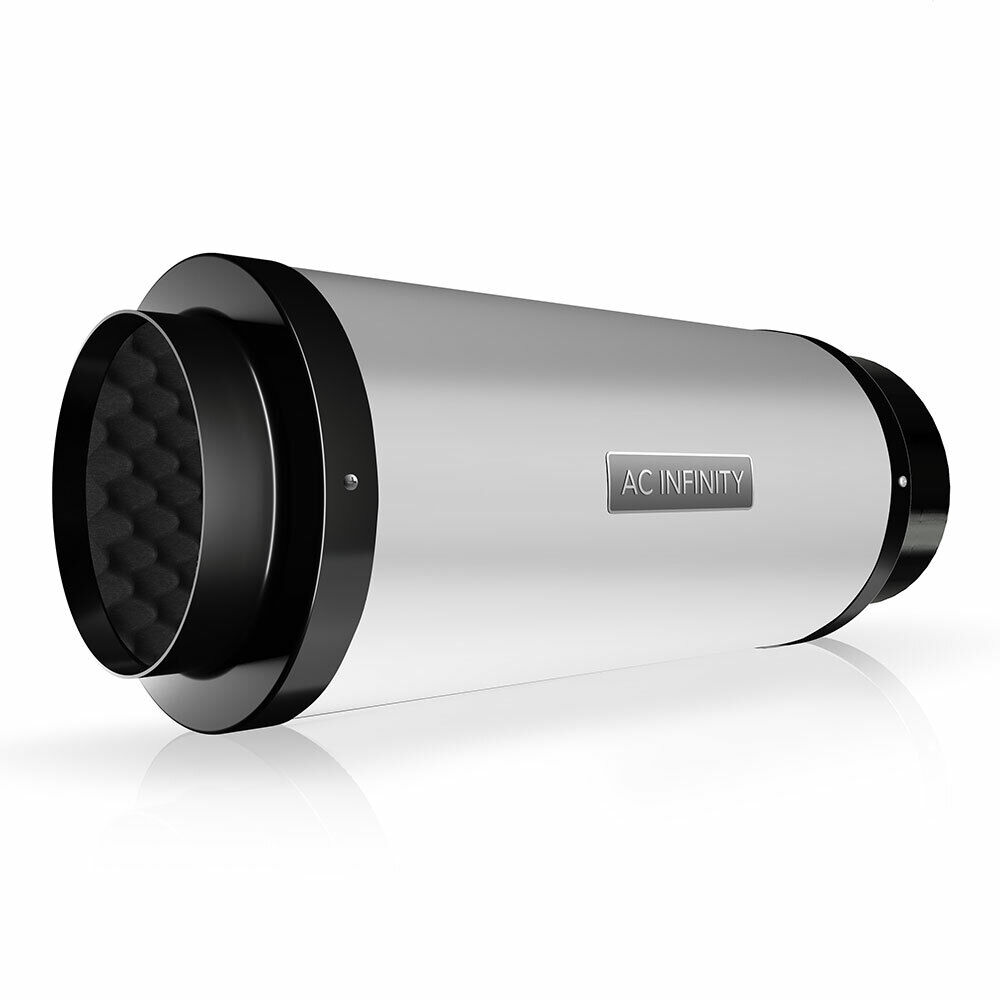An HVAC muffler reduces compressor noise by allowing gas expansion in chambers with internal baffles to dampen sound waves. Different from a filter drier, the muffler has off-center connections that help in noise reduction.
It is a crucial component in HVAC systems, situated along the discharge line to minimize operational sound. Mufflers play a vital role in reducing noise, compressor pulsations, and vibrations in refrigerant piping. By selecting the appropriate muffler and positioning it correctly, HVAC systems can operate quietly and efficiently, enhancing the overall comfort and functionality of the system.
Proper maintenance, such as cleaning, lubricating, and tightening components, can also contribute to a quieter HVAC system.

Credit: www.amazon.com
Function Of Hvac Mufflers
Function of HVAC Mufflers:
Noise Reduction
The HVAC muffler reduces noise from gas pulsations by allowing gas to expand inside chambers with internal baffles designed to dampen sound waves.
Mitigation Of Compressor Pulsation And Vibration
An air compressor muffler reduces excessive noise by silencing the compressor or blower during operation, offering configurations such as tubular silencers and filter silencers.

Credit: www.ebay.com
Types And Applications
An HVAC muffler reduces noise in gas pulsations, allowing it to expand inside chambers. Designed with internal baffles, the muffler smooths out low and high-frequency compressor gas sound waves. It is an effective solution for noise reduction in HVAC systems.
Discharge Line Mufflers
An air conditioner muffler is a component in HVAC systems that are installed by the discharge line to minimize sounds.
- Reduces Noise
- Noisy Air Conditioner
- Luce Aircon
Round Duct Noise Muffler Silencer
Round duct noise muffler silencer helps in reducing noise in HVAC systems by absorbing sound waves.
- Minimizes Noise
- Improves Acoustic Comfort
- Enhances Air Quality
Installation And Maintenance
When it comes to installing and maintaining an HVAC muffler, proper techniques and regular maintenance are crucial for optimal performance and longevity. Ensuring that the muffler is installed correctly and well-maintained can significantly reduce noise and enhance the efficiency of the HVAC system. Let’s delve into the key aspects of proper installation techniques and maintenance for optimal performance.
Proper Installation Techniques
Proper installation techniques play a vital role in ensuring the effectiveness of an HVAC muffler. The following steps should be followed for a successful installation:
- Positioning: Place the muffler in a location that allows for easy access and proper airflow.
- Secure Fittings: Ensure all connections and fittings are securely tightened to prevent any leaks or vibrations.
- Alignment: Align the muffler properly with the discharge line to minimize resistance and maximize efficiency.
- Insulation: Apply suitable insulation to the muffler to reduce heat loss and prevent condensation buildup.
Maintenance For Optimal Performance
Maintaining an HVAC muffler is essential to ensure its optimal performance over time. Here are the key maintenance practices to follow:
- Regular Inspections: Periodically inspect the muffler for any signs of wear, corrosion, or damage.
- Cleaning: Keep the muffler clean from any dirt, debris, or buildup that can obstruct airflow and reduce efficiency.
- Replacing Filters: If the muffler is equipped with filters, ensure timely replacement to maintain proper airflow and minimize noise.
- Lubrication: Lubricate any moving parts or connections to prevent friction and reduce noise.
Cost And Availability
When it comes to purchasing an HVAC muffler, cost and availability play a crucial role. Understanding the available options and their corresponding prices can help you make an informed decision and choose the best muffler for your HVAC system. In this section, we will discuss the comparison of prices and the availability of HVAC mufflers from different suppliers.
Comparison Of Prices
Before investing in an HVAC muffler, it’s important to compare prices from various suppliers to ensure you get the best value for your money. Here is a comparison table showcasing the prices of some popular HVAC mufflers:
| Supplier | Price |
|---|---|
| AC Infinity Inline Duct Fan Silencer | $59.99 |
| HTG Supply | $40.00 |
| agriculturesolutions.com | $129.99 |
| Amazon.com | $114.99 |
| Skip The Warehouse | $31.67 |
| HvacPartsShop | $117.00 |
Availability From Different Suppliers
Now that we have looked at the prices, let’s explore the availability of HVAC mufflers from different suppliers. Here are some suppliers where you can find reliable HVAC mufflers:
- AC Infinity – Offering the Inline Duct Fan Silencer for $59.99
- HTG Supply – Providing an affordable option at $40.00
- agriculturesolutions.com – Offering premium quality mufflers priced at $129.99
- Amazon.com – A popular online marketplace with a variety of HVAC mufflers, including options starting at $114.99
- Skip The Warehouse – Providing affordable mufflers with prices starting at $31.67
- HvacPartsShop – Offering a range of mufflers with prices starting at $117.00

Credit: www.amazon.ae
Frequently Asked Questions For Hvac Muffler
What Is A Muffler In Hvac?
A muffler in HVAC reduces noise from gas pulsations by allowing gas to expand inside chambers. It has baffles to dampen and smooth out compressor sound waves.
What Is The Difference Between A Muffler And A Filter Drier?
A muffler in HVAC reduces compressor noise by allowing gas expansion in chambers with internal baffles. Unlike a filter drier, mufflers have off-center connections.
What Does A Muffler Do On A Compressor?
A muffler on a compressor reduces noise by allowing gas to expand, dampening and smoothing out sound waves.
How Do I Make My Hvac Quieter?
To make your HVAC quieter, clean and tighten the blower fan, lubricate the fan motor, and tighten loose screws. Additionally, you can consider installing a muffler, which reduces noise by allowing gas to expand inside muffler chambers and dampening compressor sound waves.
Conclusion
In a nutshell, an HVAC muffler serves as a noise reduction device by allowing gas expansion in its chambers. It helps dampen and smooth out compressor gas sound waves, creating a quieter environment. Additionally, mufflers can also mitigate compressor pulsation and vibration through refrigerant piping, making them an essential component for noise control in HVAC systems.

